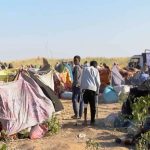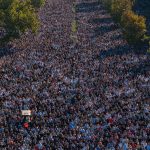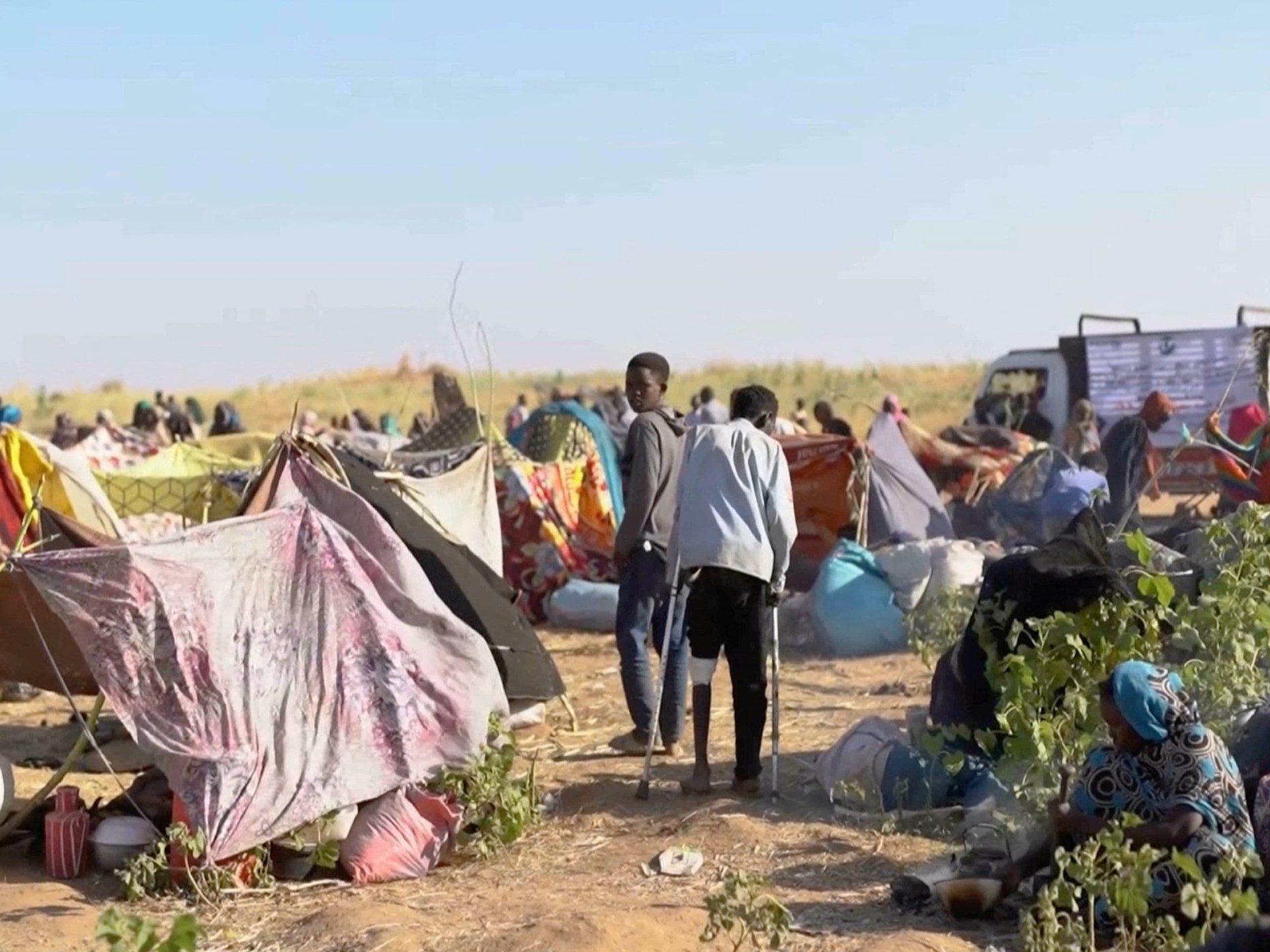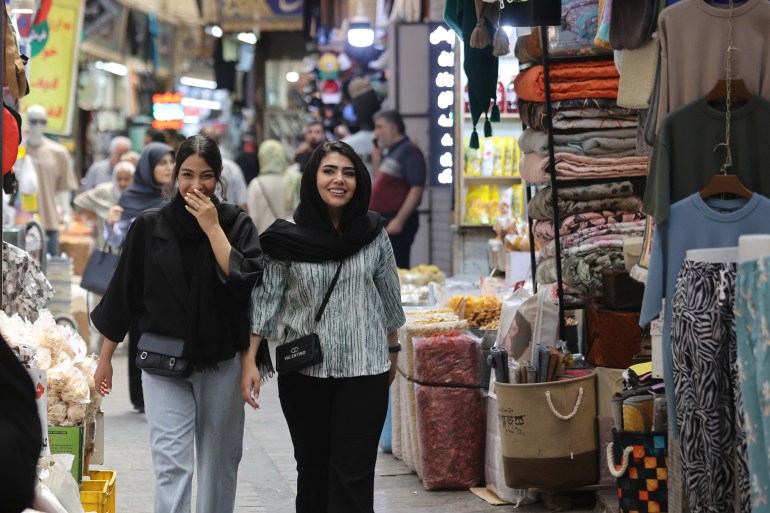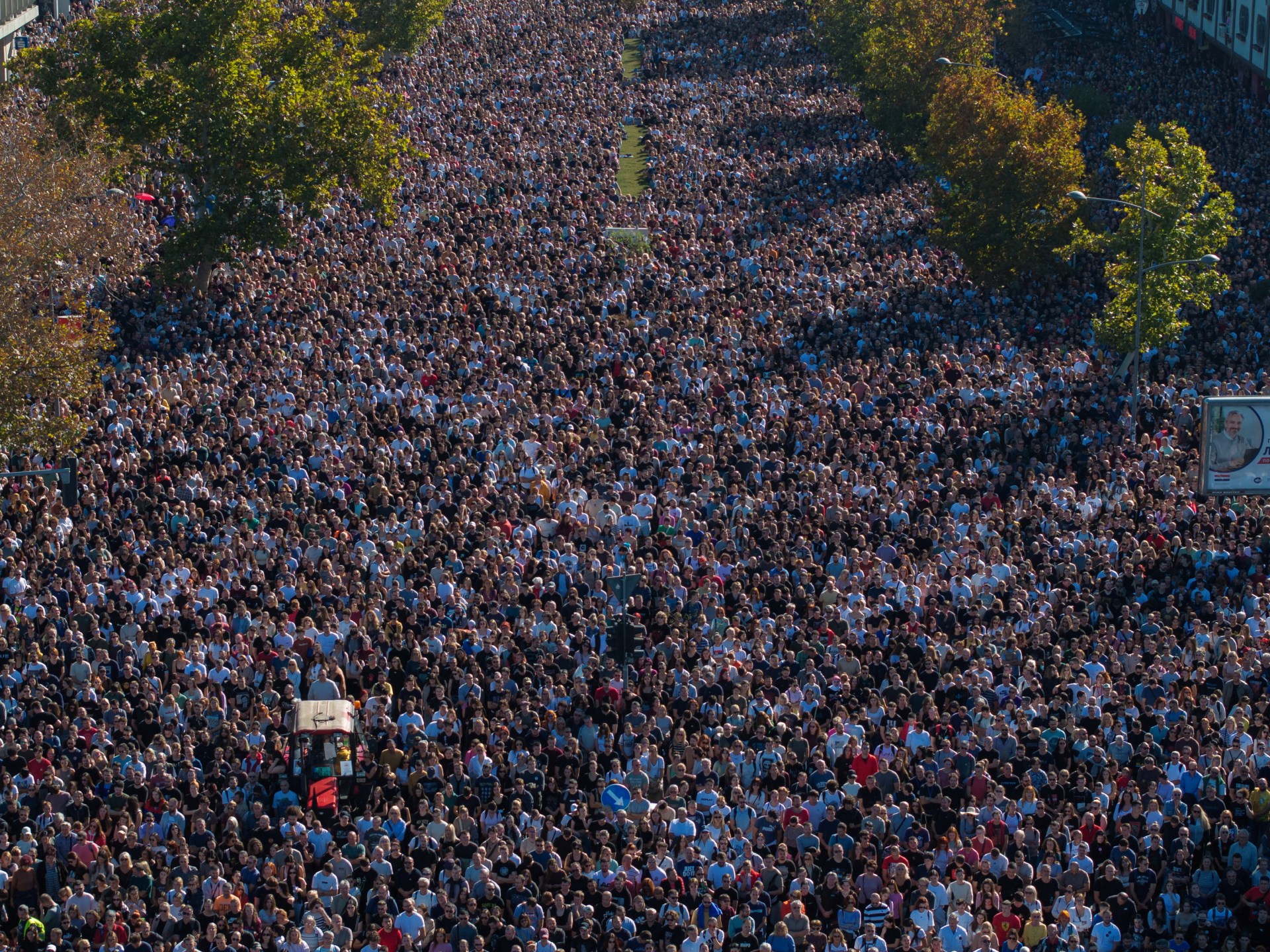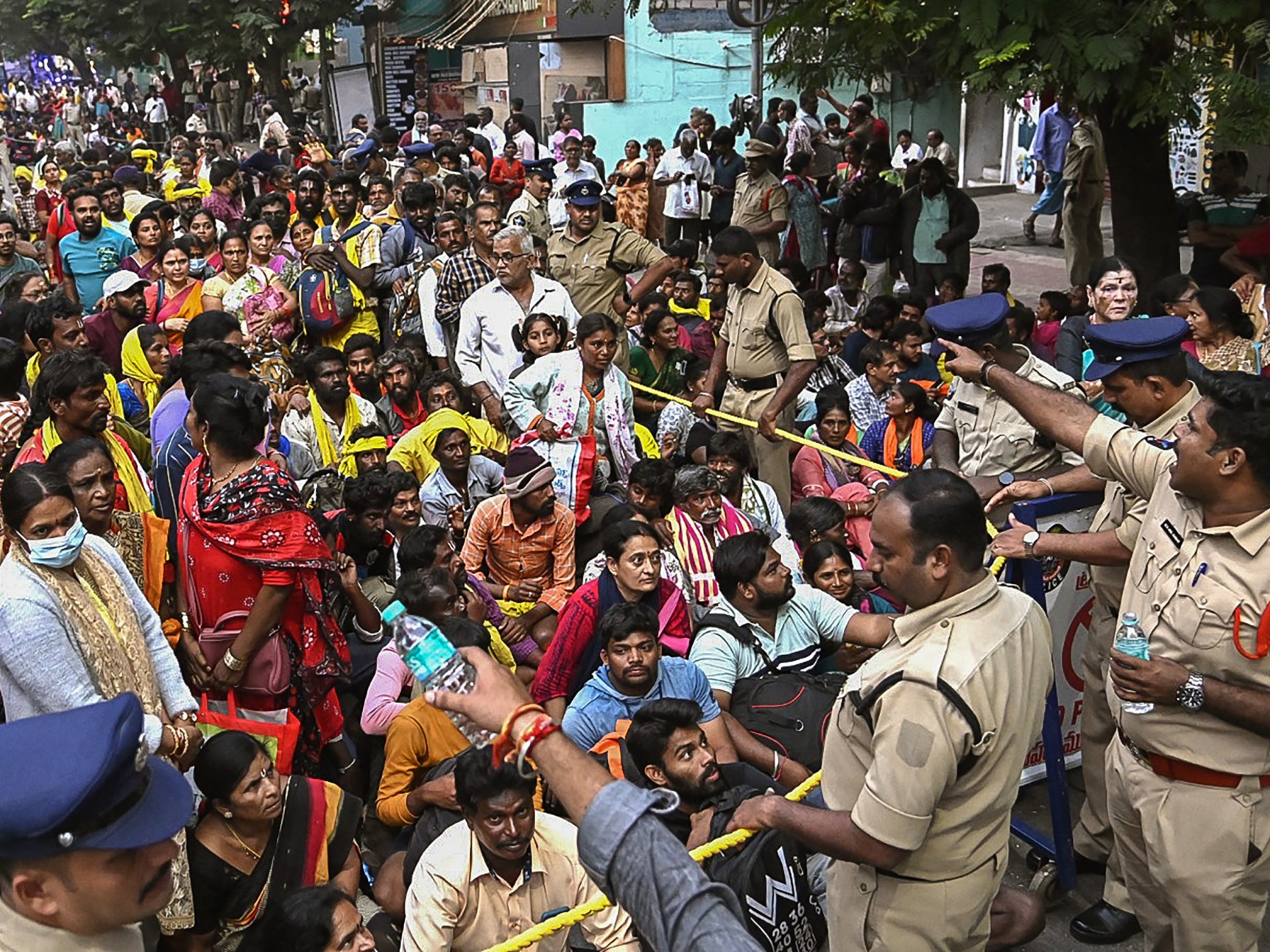The el-Fasher massacre in late October highlighted that the war in Sudan shows little sign of abating.
Published On 31 Oct 2025
Sudan’s civil war between the regular army known as the Sudan Armed Forces and the paramilitary Rapid Support Forces continues unabated.
The conflict is well into its third year and has seen both sides allegedly commit war crimes and crimes against humanity. In addition, the RSF is implicated in atrocities that may amount to genocide, especially in the sprawling western region of Darfur.
Recommended Stories
list of 3 itemsend of list
Here are the key battlefield, humanitarian and political developments from this month.
Fighting and military control
- The RSF now effectively controls the entire western region of Darfur after capturing the besieged city of el-Fasher on October 26.
- During the RSF’s invasion of el-Fasher, it began a campaign of mass killing against civilians fleeing to remote villages and towns. The local monitor, Sudan Doctors Network, said at least 1,500 people were murdered in 48 hours.
- The RSF also captured the strategic town of Baraa in North Kordofan state at the end of October. The RSF was reported to have committed acute human rights abuses in Baraa. According to the Sudan Doctors Network, at least 47 people were murdered in their homes, and more than 4,500 people have been uprooted to surrounding towns and cities.
With the capture of Baraa and el-Fasher, the RSF is now poised to attack North Kordofan’s capital, el-Obeid. The loss of the city could prove to be a major setback for the SAF, since the city operates as a major buffer to protect central and eastern Sudan, which the army controls.
Humanitarian crisis
- Tens of thousands of civilians remain trapped in el-Fasher and hiding from RSF troops in underground trenches, or they are trekking in the middle of the desert to reach towns roughly 60 kilometres (37 miles) away.
- Prior to the RSF’s capture of el-Fasher, it had imposed a suffocating siege on the city for more than 18 months. The siege forced hundreds of thousands of residents to try and flee, while those who remained staved off starvation by eating animal fodder known locally as “ambaz”. Those now trekking through the desert to reach safety risk dying of thirst and hunger on the road.
- The UN’s top aid official, Tom Fletcher, said that “women and girls are being raped and people being mutilated” as he described the terrifying plight of people trying to flee el-Fasher.
- According to the International Organisation for Migration, just more than 33,000 people have reached nearby towns. New arrivals do not have adequate shelter or food aid, and most people are relying on local volunteers for sustenance.
- The situation in North Kordofan is also catastrophic. The Sudan Doctors Network said that about 1,900 people reached el-Obeid from Bara. Most are sleeping in open-air huts without roofs or adequate sanitation.
- Despite famine levels of hunger spreading across Sudan, the SAF took the measure of declaring two top World Food Program officials as “persona non grata”, raising concerns about the SAF’s commitment to mitigating the hunger crisis. Sudan’s state-run news agency claimed that the officials violated their “neutrality” without offering further explanation.
- WFP said in a statement that the expulsions of two of its top officials “jeopardises” their humanitarian operations at a time when 24 million people are acutely food insecure across the country.
Diplomacy and political developments
- The United States, the United Arab Emirates, Egypt and Saudi Arabia – four countries engaged in mediation efforts in Sudan and collectively known as the Quad – met in Washington to discuss implementing a roadmap to end the war on October 25. The Quad reportedly made little progress and merely agreed to form a symbolic “joint committee” to end the conflict.
- The diplomatic meeting occurred two days before the RSF invaded el-Fasher and committed new atrocities. The RSF has previously exploited mediation forums and peace talks to wage major offensives. For example, in November 2023, the RSF captured four out of the five states in Darfur in a lightning rod attack shortly after ceasefire talks had stalled in Jeddah, Saudi Arabia.
- On October 16, SAF chief Abdel Fattah al-Burhan met Egypt’s President Abdel Fattah el-Sisi to discuss a possible ceasefire.
- Diplomacy to end the war has so far failed to meaningfully mitigate atrocities or secure a basic ceasefire.

